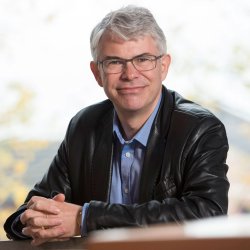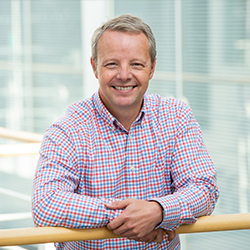Noise Network Plus: The £1.8 million initiative to engineer a quieter future
An interdisciplinary network of engineers, policymakers, industry stakeholders and social scientists, led by the University of Surrey, will take on one of the UK’s most overlooked environmental challenges: noise pollution.

From the constant hum of road traffic to the thousands of flights in and out of UK airports, noise awareness in our modern world often fades into the background – but it carries significant consequences for both human health and wildlife. Noise Network Plus will focus on promoting conscious design processes to create quieter products, buildings and transportation systems – with the aim of reducing noise pollution and building a healthier environment over the next 10-15 years.
Awarded more than £1.8 million in funding, Noise Network Plus is one of six research projects to receive a share of £10 million from the Engineering and Physical Sciences Research Council (EPSRC). Together they form part of its wider community engagement initiative to address ‘Tomorrow’s Engineering Research Challenges’ (TERC), launched today (11th February), which focuses on tackling the most pressing issues facing the engineering sector.
A collaboration between the University of Surrey, City St George's University of London, the University of Bath, and the University of Salford, Noise Network Plus aims to build unprecedented research capabilities to tackle the complex challenge of reducing noise and its impacts on people, the environment and the economy. Bringing together diverse teams and stakeholders, the initiative will promote inclusive dialogue and co-design innovative solutions.
Alan Hunter, Professor in Autonomous Systems based in the University of Bath’s Department of Mechanical Engineering, will lead the network’s efforts on underwater noise and artificial intelligence. This will include research into the effects of noise created by human activities at sea and improving the resilience of uncrewed underwater vehicles to noise.
The ocean is a noisy place, and a lot of the tools and technologies we rely on to deliver services either increase noise levels or are affected by noise. Taking oceanographic measurements, measuring marine wildlife populations, or inspecting underwater infrastructure, are all examples of activities affected by noise and of which we need to build a better understanding.Professor Alan Hunter, University of Bath
Professor Antonio Torija Martinez and Dr Simone Graetzer are co-leads on the project at the University of Salford’s Acoustic Research Centre.
As the UK moves toward Net Zero, the adoption of sustainable energy and emerging technologies – such as wind turbines and drones – will introduce new sources of noise, fundamentally reshaping our soundscapes. This offers us a unique opportunity for a fresh start and through our initiative, we aim to transform the way noise is managed, embedding innovative solutions into engineering design and policy.Professor Antonio Torija Martinez, University of Salford
Professor Charlotte Clark is the Professor of Environmental Epidemiology in the Population Health Research Institute at City St George’s, University of London.
This is a rare and timely opportunity to form multidisciplinary and interdisciplinary teams to develop engineering solutions addressing the problem of noise effects on health. We know that noise affects health, but we know little about how to mitigate the problem. The missions developed in the Noise Network Plus have the potential to step up mitigation efforts that will translate into major, long-term public health gains.Professor Charlotte Clark, City St George’s, University of London
The launch of Noise Network Plus will take place on 18th March at Prince Philip House, the home of the Royal Academy of Engineering, in London. The event will bring together a cross-section of people from engineering and other disciplines including researchers, industry, professional institutions, policymakers, charities, and other stakeholders, to identify the challenges that need to be addressed, and plan how the Network can work to address these challenges.
###
Notes to editors
- Professor Mark Plumbley is available for interview; please contact mediarelations@surrey.ac.uk to arrange.
- To find out more about the EPSRC’s mission here.
Featured Academics
Media Contacts
External Communications and PR team
Phone: +44 (0)1483 684380 / 688914 / 684378
Email: mediarelations@surrey.ac.uk
Out of hours: +44 (0)7773 479911


